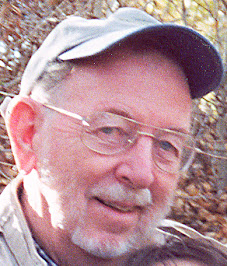 |
| “Some young refugees who fled war in Syria now live in Germany.” Photo by Gordon Welters for the NY Times. |
This photo accompanies an
article by Nicholas Kristof in the New York Times, January 6, 2018,
intriguingly titled, "Why 2017 Was the Best Year in Human History."
When I saw this article and photo I immediately thought about the story of Tim
the Innkeeper, told in my last posting (March 12). At least some families in
Germany must have said to these refugee children, "You can stay at my
house."
The article doesn't, however, tell us anything more about those children or any other individuals, instead lifting the "helping people in need" theme to a global statistical level: "2017 was probably the very best year in the long history of humanity. A smaller share of the world's people were hungry, impoverished or illiterate. A smaller proportion of children died. The proportion disfigured by disease fell. Every day the number of people living in extreme poverty (less than $2/day) goes down by 217,000. Every day, 325,000 people gain access to electricity. And 300,000 more gain access to clean drinking water."
Well, I welcome any and all good news. Thanks, Nicholas. However:
For example, that 300,000 people gain access to clean water every day is wonderful; but the number behind that number is of the kind we typically call "staggering:" 663 million people worldwide without good water. About 9% of the world total 7+ billion population. And then to realize that just that 9%, 663 million humans, approaches what some scientists estimate to be the long-term sustainable human carrying capacity of our Earth. If this planet is our "inn," we have massively overbooked it.
The article doesn't, however, tell us anything more about those children or any other individuals, instead lifting the "helping people in need" theme to a global statistical level: "2017 was probably the very best year in the long history of humanity. A smaller share of the world's people were hungry, impoverished or illiterate. A smaller proportion of children died. The proportion disfigured by disease fell. Every day the number of people living in extreme poverty (less than $2/day) goes down by 217,000. Every day, 325,000 people gain access to electricity. And 300,000 more gain access to clean drinking water."
Well, I welcome any and all good news. Thanks, Nicholas. However:
For example, that 300,000 people gain access to clean water every day is wonderful; but the number behind that number is of the kind we typically call "staggering:" 663 million people worldwide without good water. About 9% of the world total 7+ billion population. And then to realize that just that 9%, 663 million humans, approaches what some scientists estimate to be the long-term sustainable human carrying capacity of our Earth. If this planet is our "inn," we have massively overbooked it.
And then to realize there
was a time not that long ago in "the long history of humankind" when
clean drinking water was available in just about every nearby spring or flowing
stream. What has happened? Overpopulation, over-industrialized "development."
Which, requiring the massive burning of fossil fuels, has brought on
catastrophic climate change (aka Global Harming). Those Syrian children are
described as war refugees. But the Syrian civil war was brought on in large
part by unprecedented droughts causing 1.5 million people to migrate to
the country’s cities between 2006 and 2011, seeking help that the Syrian
government was not willing or able to provide.
The UNHCR reports almost
66 million people world-wide have been "forcibly displaced" from
their homes in recent years. And the Internal
Displacement Monitoring Centre reports 24.2 million displaced by
natural disasters in 2016, the latest year figures are available for.
So, clearly there is no room
left in our global inn. Just more and more people in need.
Among the many possible ways
to respond to this Situation, I want to recommend supporting two organizations
that Judy and I have long-time personal acquaintance with, and are actually
Doing Something to help people in need. They are both faith-based (Christian)
communities organized to be of service to people in need. The Alterna Community/Casa
Alterna helps displaced people find room at the inn, especially in the Southeast USA; the Jubilee
House Community/Center for Development in Central America helps people living
in the poorest city of the third poorest country of the Americas find sustainable, community-based ways to live, and so avoid being displaced:
Photo shows Alterna's Anton
Flores-Maisonet with Carlos, just one of many people in need befriended by
Alterna, on a visit to the Salvadoran consulate. We heard Carlos tell his
moving refugee story (translated by Anton) to several hundred people attending
the Koinonia Farm's 75th anniversary Clarence Jordan Symposium in
Americus GA last Friday. Alterna is headquartered close by in
LaGrange GA, and we cherish a long-time friendship with Anton and his wife
Charlotte. Their motto: Love Crosses Borders/El Amor Cruza
Fronteras.
We got to know and love
folks with Jubilee House Community in the 1980s when they operated a
hospitality house in North Carolina. (For some years enjoying Passover Seders
with them, when they taught us to sing Amazing Grace to the Gilligan's Island
theme!) In 1994, they moved to Nicaragua and set up the Center for Development
in Central America in Ciudad Sandino, near Managua, where they (with volunteers
from the States and other first world countries) provide services promoting
health care, education, and sustainable agriculture and economic development.
Photo shows a scene at the Nueva Vida medical clinic they operate in Ciudad
Sandino.




